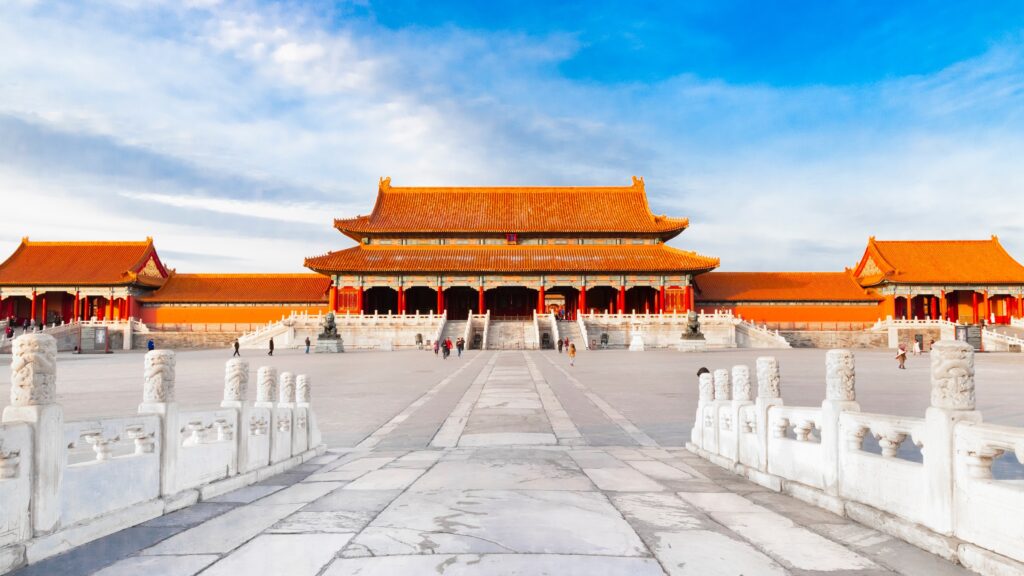Moving to China Guide
China is a beautiful country with an intriguing history and expatriates who are relocating abroad in order to live and work there should be sure to take time to see and experience some of the cultural hotspots – like the Forbidden City and the Great Wall.
Of course, it’s also important to learn all you can about life in China, as it can be much different from what you are used to.
China Weather
China’s land mass is 44 times larger than the UK, which means the weather varies dramatically between different destinations. The Himalayas stand in the west, with the Gobi Desert in the north and the country spans two major ecozones. This means China can be anything from tropical to subarctic, and let’s not forget the smog! In general, people tend to split areas of China to fit into one of five climactic zones: tropical, subtropical, temperate, medium temperate, and sub-arctic.
Northern China, notably containing Beijing, has warm summers that are very humid and have high levels of rainfall. The winters in this area get progressively colder the further north you travel and boasts some of the coldest temperatures recorded in the country. In the city of Beijing alone, winter temperatures can dip to as little as -20°C.
China Weather
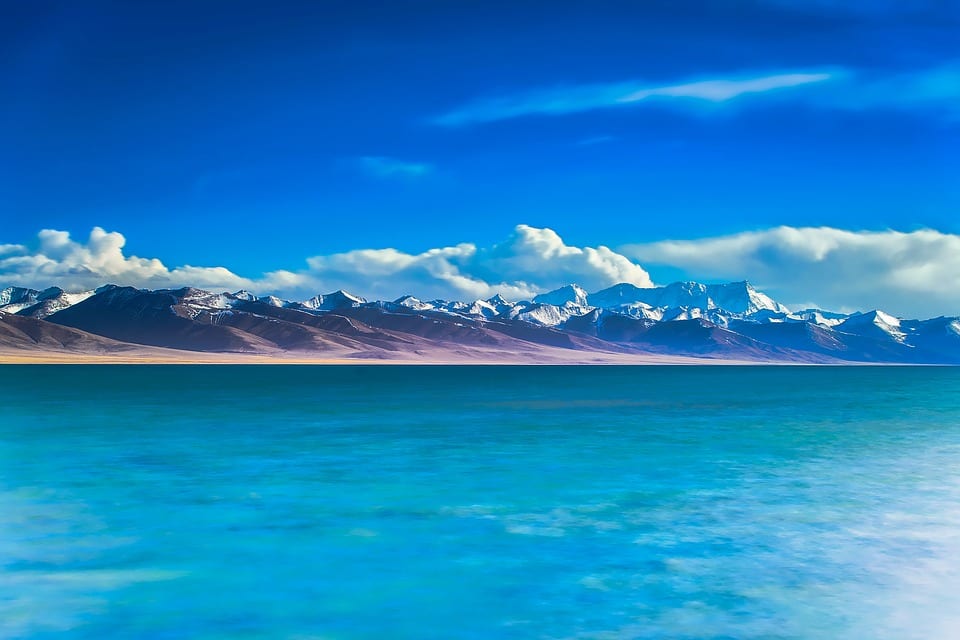
Shanghai is a city located in the east of China. With the east of China being coastal, the weather is often affected by ocean currents, which can result in monsoons. Summer temperatures can reach 37°C in the east, but they are usually very humid and wet. Winters reach an average low of 1°C with light rain and snow.
Central China is a little more settled, with fewer extremes between the seasons. Rain is a year-round occurrence with some summer monsoons. Temperatures are warm throughout the tear, with an occasional light snowfall in winter.
Lastly, Western China is greatly affected by its geographical diversity. In general, winters are dry and cold. Some areas towards the desert plateaus experience scorching summers, whereas the likes of mountainous Tibet have milder summers.
China Culture
Whether you’re living and working in China, or just there on a visit, all foreign nationals over 16 need to keep their passport with them at all times – police do carry out random checks. Within 24 hours of arrival, you should also register your address with the local Public Security Bureau, although if you’re staying at a hotel, this is done for you when you check in.
Public order is strictly enforced in China, so you should avoid being near public demonstrations wherever possible – this is especially true in autonomous regions like Tibet and Xinjiang Uyghur.
Visitors to China should also be aware that drug offenses are extremely serious and can carry very strict punishments including, in some cases, the death penalty. Gambling is also illegal in China and you’ll also find that certain websites are blocked throughout the country.
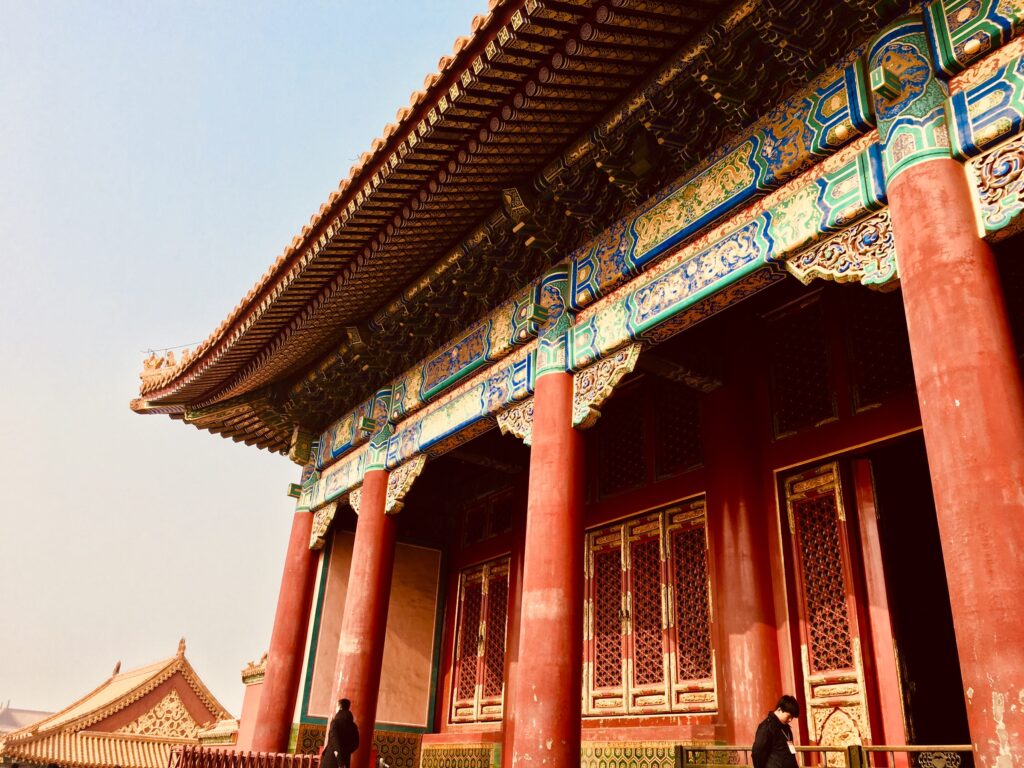
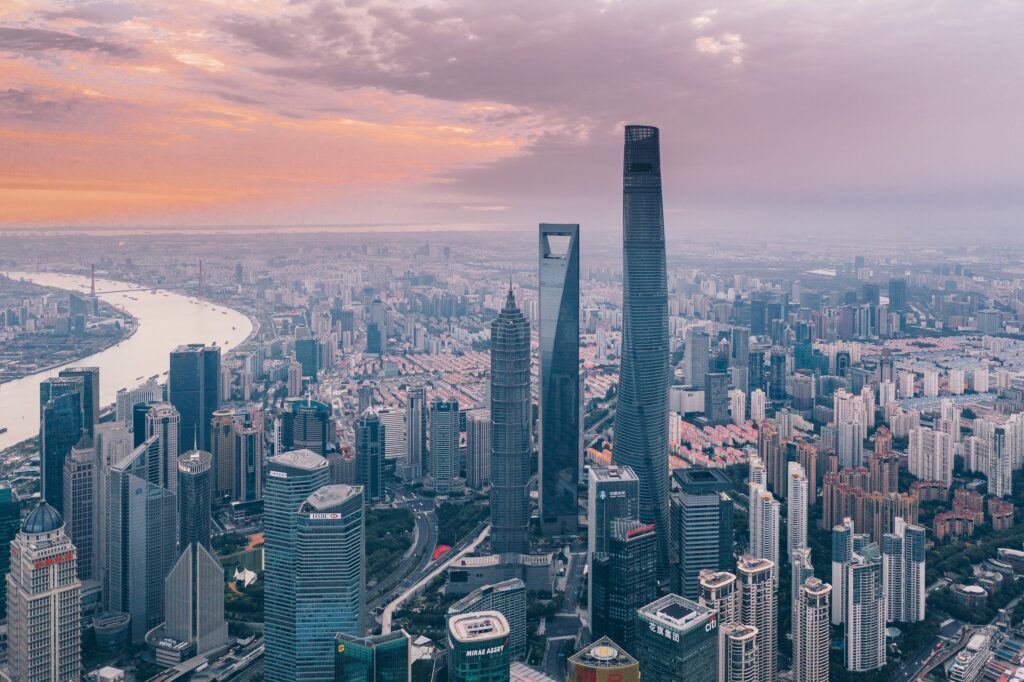
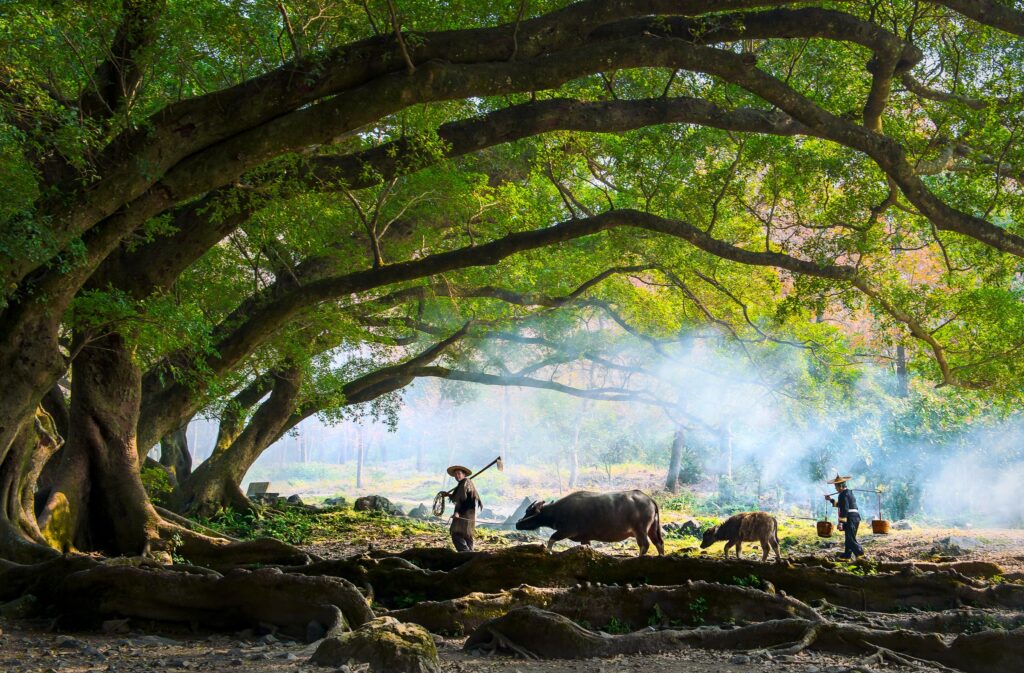
China is known for its strict social etiquette, and it’s important to preserve good manners and courtesy at all times. Handshakes are a common form of greeting – they should be firm but brief – and in most cases, a formal body posture and sense of calmness should be maintained.
Gifts are considered a way of showing courtesy and they are given on special occasions. When receiving a gift, it’s customary to refuse the offer two or three times before accepting it, as a way of demonstrating modesty.
Meal times can be difficult to navigate when it comes to etiquette, but here are a few rules to bear in mind: never stick your chopsticks upright in the rice bowl, avoid pointing the teapot’s spout at someone, never allow a cup of tea to run dry and finally, as a mark of respect, you should begin eating in order of seniority.
Languages in China
It’s estimated that around one-fifth of the world’s population speaks some form of Chinese, although there are many varieties of the language – including the three most common, Mandarin, Wu and Cantonese.
Although the various versions of the language are quite different, they are all tonal languages and do share a few common words. Standard Chinese is based on the Beijing dialect of Mandarin and is the official language of the People’s Republic of China and Taiwan. It is also one of the four official languages of Singapore.
Healthcare in China
The healthcare system in China can be difficult to understand, but it is not offered to everyone and does not cover all costs for those who are eligible. Bigger cities like Beijing and Shanghai have large western-style hospitals, but in more remote places the care you receive may be significantly different from what you are used to. The Chinese system is hospital-centred, so expats will not need to search for a GP.
The public healthcare system in China is inconsistent and generally considered substandard. The hospitals in cities provide a level of care similar to countries such as the UK, USA, and Australia. The problem lies with rural areas. Sometimes remote locations can be hours or days away from a medical facility. Expats should be prepared for extremely long waits and communication issues in public hospitals. Patients are also required to keep their own medical records whilst in hospital.
As a rule, the price of care in a private hospital is double that of a public facility. Private medical institutions can be found in larger cities such as Beijing, Shanghai, and Guangzhou. These hospitals have staff that were trained in the west and, therefore, they speak fantastic English.
In either case, International Health Insurance is a must for expatriates in China, and purchasing travel insurance for expats is something we highly recommend even if you are just staying for a short period of time. This will help ensure you get the care you need, without having to worry about the financial implications.
Get a QuoteHealthcare in China
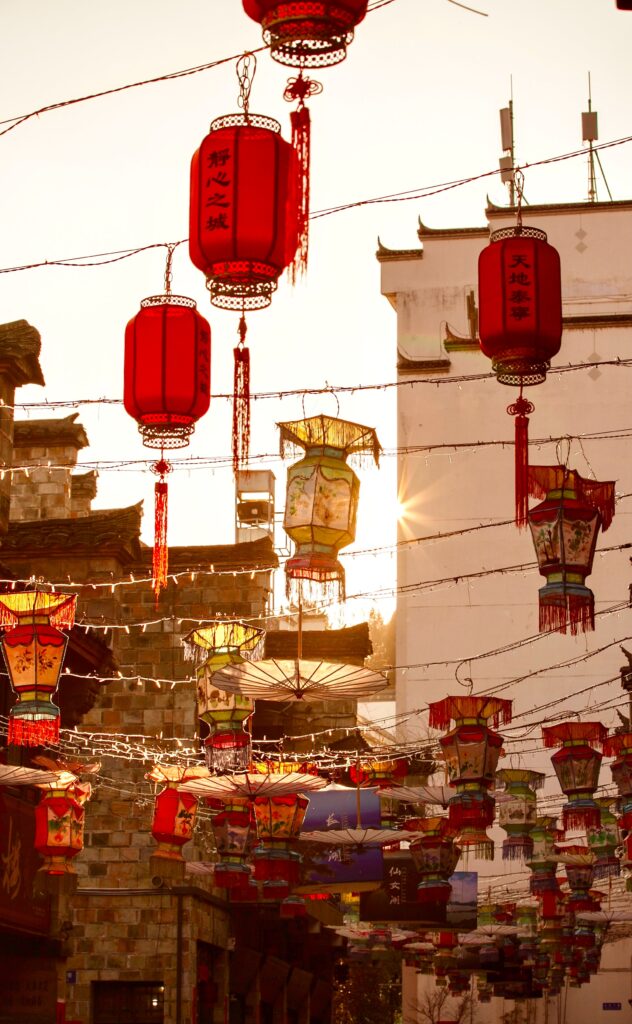
Transportation in China
China is a huge country and, therefore, there is an abundance of transport options. Expats in China have access to buses, trains, subways, trams and taxis in urban areas. If travelling further afield, there are long-distance trains and buses, as well as domestic flights. Cycling in China is very popular, with some cities having public bicycle hiring programmes as a part of their public transport infrastructure.
Expats who wish to drive in China will need to get a local license as International Driving Permits are not recognised. However, it is best to stick to public transport. Chinese roads are chaotic, and etiquette is much different to that in the west. Lanes are ignored, there is little concept of right of way, and the only noise you can hear is honking. Furthermore, parking is a nightmare and the roads are often gridlocked. If you are intent on having a car in China, the best option is to rent a vehicle with a driver.
Given the carnage on China’s roads, cyclists have to keep their wits about them. However, cycling is very popular in China and is a cheap and convenient way of getting around cities. It is best to buy a second-hand bike as bicycle theft is common.
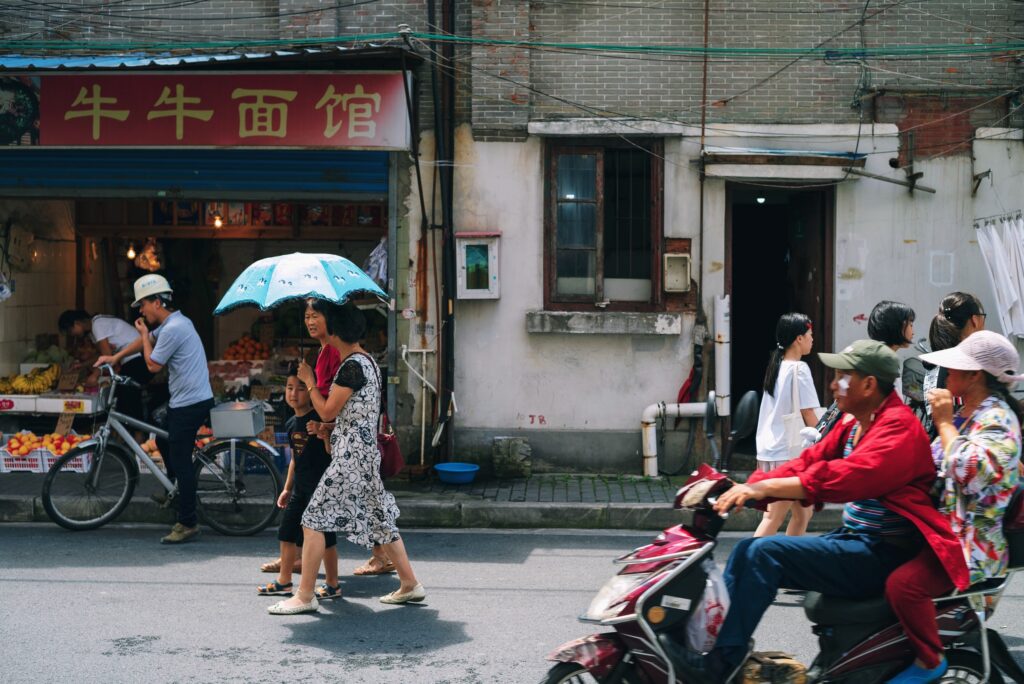
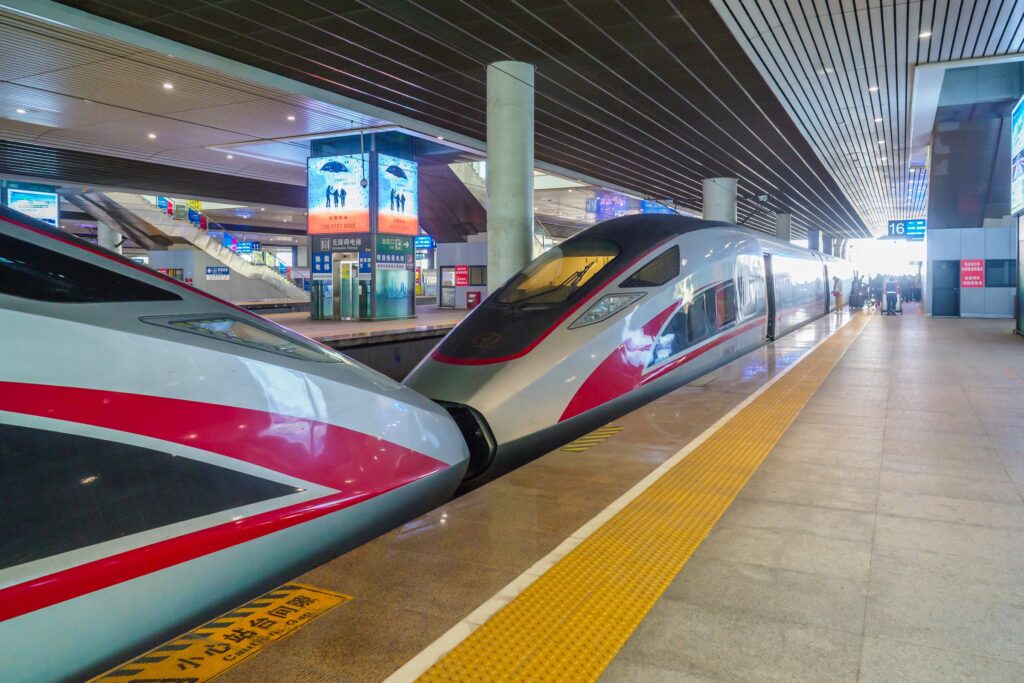
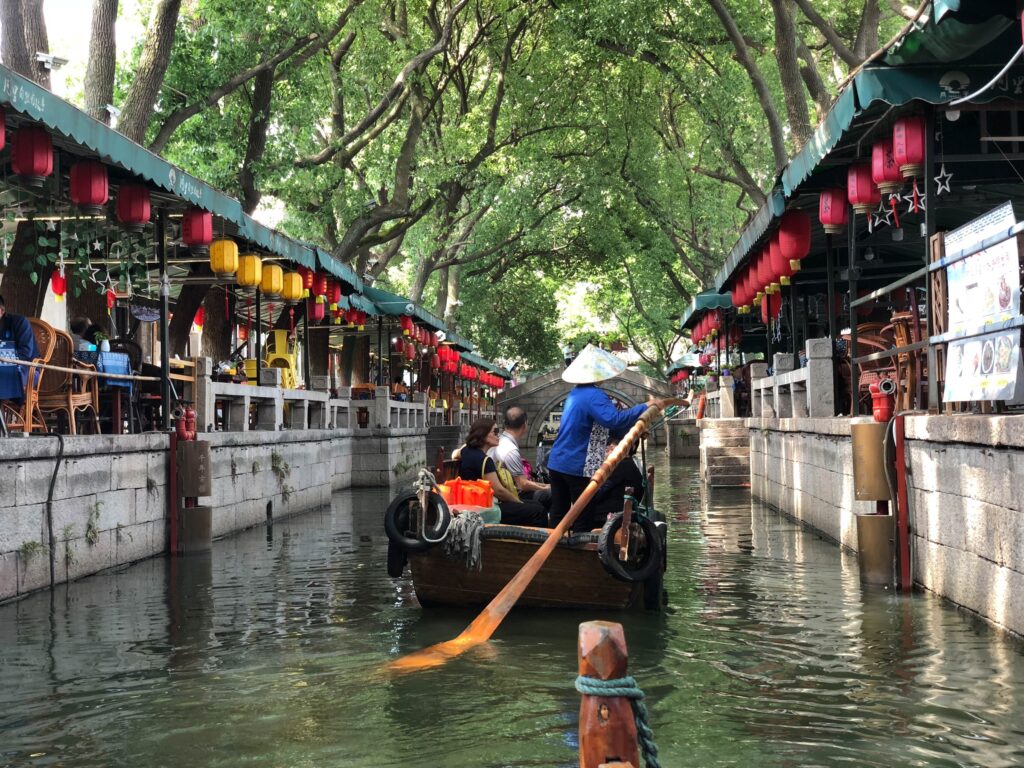
The national rail network in China is extensive and covers the entire country. The state-owned China Railway Corporation is constantly expanding and making changes to the infrastructure, especially in regard to the high-speed trains. Like many countries, the trains have different classes, and many long-distance trains have sleeper carriages to make journeys a little more comfortable.
Most famous, however, are China’s high-speed trains. These run between major cities such as Beijing, Shanghai, Guangzhou and Shenzhen. These are much more comfortable than the normal trains and cut journey times dramatically. If choosing to travel by train, expats should be aware that most railway staff speak little English, so it can often be best to get tickets through an agent to avoid long station queues.
Travelling by bus is an inexpensive way to get around China, although services can range from luxury to nightmarish. Air-conditioned buses with comfortable seats travel between cities but could end up costing more than the equivalent train ride. Rural buses are incredibly cheap, and you can often find a service that isn’t a painful experience. However, expats should be prepared for poorly maintained coaches, delays, and bus drivers who understand very little English.
Similarly, taxi drivers rarely speak English in China so most expats have their destination written in Chinese on a piece of paper, or on a phone. These journeys are reasonably priced but do expect rates to escalate a little at night, during peak hours, or during bad weather. Always use metered taxis.
What is the currency in China?
The official currency of China is the Renminbi (RMB or CNY). Expats should not be alarmed if they hear it referred to as the Yuan or Kuai, this is an informal word for money. One renmindi is equal to 100 fen or 10 jiao. There are seven RMB notes, split into denominations of 1, 2, 5, 10, 20, 50 and 100 RMB. Coins are 1 and 5 jiao, and 1 RMB (which is equal to 10 jiao).
For expats, opening a bank account in China is easy. There are many local and international banks to choose from. The most popular international banks are HSBC, Citibank, and Standard Chartered Bank. Many expats who have an account with one of these international banks continue to do so when they move to China. However, it is worth remembering that international banks often require a large minimum balance or maintenance deposit. Furthermore, branch-specific ATMs may be limited in certain locations.
Popular local banks include Bank of China, the Construction Bank of China (CBC), Industrial and Commercial Bank of China (ICBC) and the Agricultural Bank of China. CBC and ICBC are well known amongst expats for having English-speaking staff, as well as a user-friendly and reliable English Internet banking system.
Some branches of some banks may require a copy of your visa or proof of residence, but most expats just need their passport and a small amount of currency to open a standard account.
Schools in China
Public education in China is free of charge – and compulsory – for children aged six to 15. Parents are, however, responsible for covering small costs such as paying for books and school uniforms. Classes are held five or six days per week, depending on the school. They begin around 7am and end in the late afternoon – 4pm or later. After the age of 15, kids may continue to high school, but parents will have to pay for this – in rural areas, many children will end their education at this point.
Many expats are choosing to send their children to public schools in China, particularly those who plan to remain in the Far East. Public schools teach solely in Chinese, with few concessions made for foreign students. Many parents choose this option so that their children can become integrated into Chinese society and pick up the local language.
Private schools in China are also another option for expat children. Private school fees are much less than those of international schools, and many offer an international curriculum in English, as well as Chinese. Alternative schools, such as Waldorf and Montessori also fall into this category.
However, most parents do end up sending their children to international schools. Beijing, Shanghai, and Guangzhou have many different international facilities to choose from and the majority follow the International Baccalaureate or the curriculum from the country they represent. Most schools, regardless of country, teach in English. It is best for parents to investigate international schooling for their children sooner rather than later. Waiting lists can often be long and entrance is very competitive. Like all international schools, fees can be very high.
For parents who cannot afford the fees attached to private and international school places, home-schooling is another option that is very popular amongst expat parents in China. It has grown in popularity amongst foreigners and locals alike. Many of the large cities have facilities for parents and students who have chosen the home-schooling path.
Schools in China
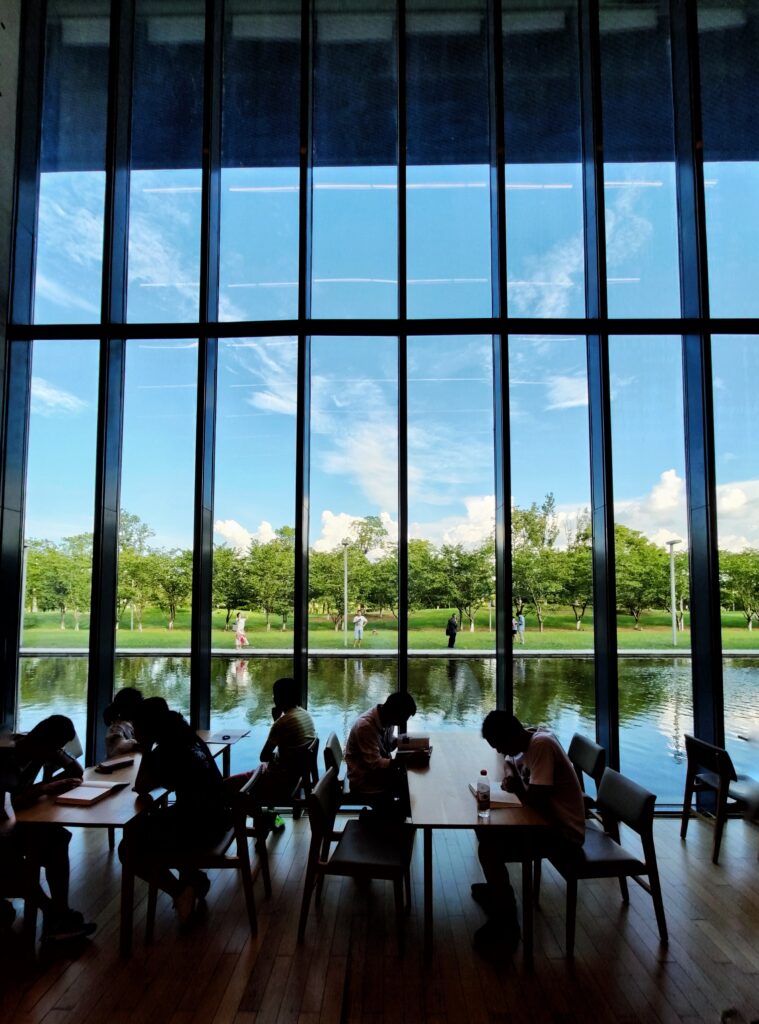
China Food and Drink
Food in China is based on region. Wherever you eat, Chinese chefs take pride in the freshness of their ingredients and meals are cooked to order. Street food is celebrated in China and many districts will have pavements lined with searing hot woks full of delicious cuisine. If eating out in China, foreigners should keep an eye on what they are ordering. Many meals are prepared using endangered species, such as turtles. Furthermore, dog meat is not just a joke conjured up by western tongues. Always check the contents of a dish before ordering. However, do not let this put you off. Chinese food is some of the most delicious in the world.
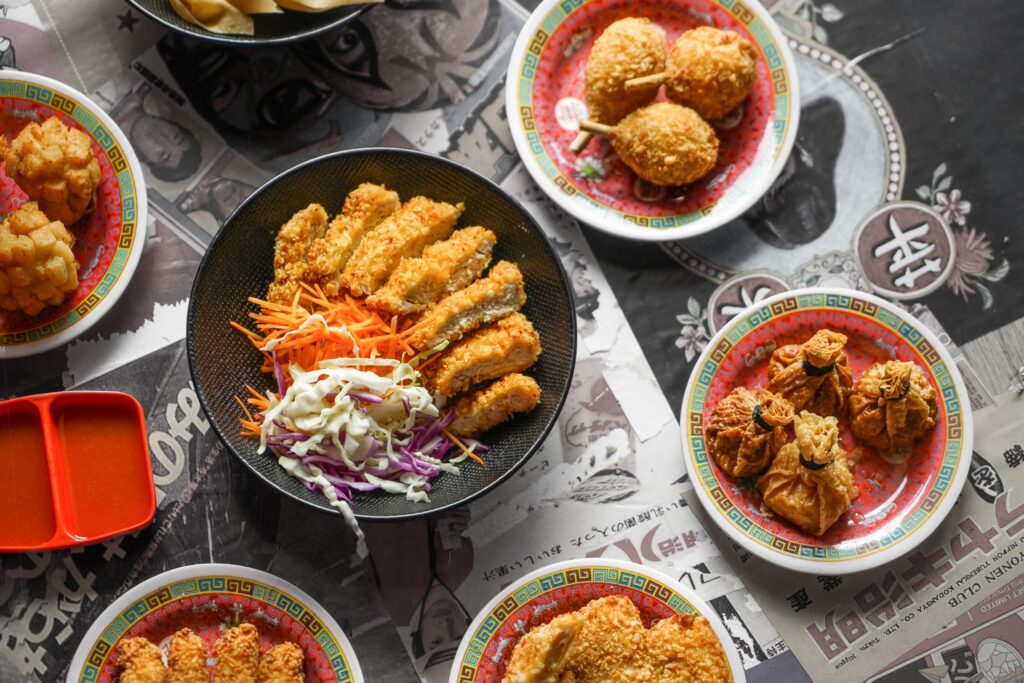
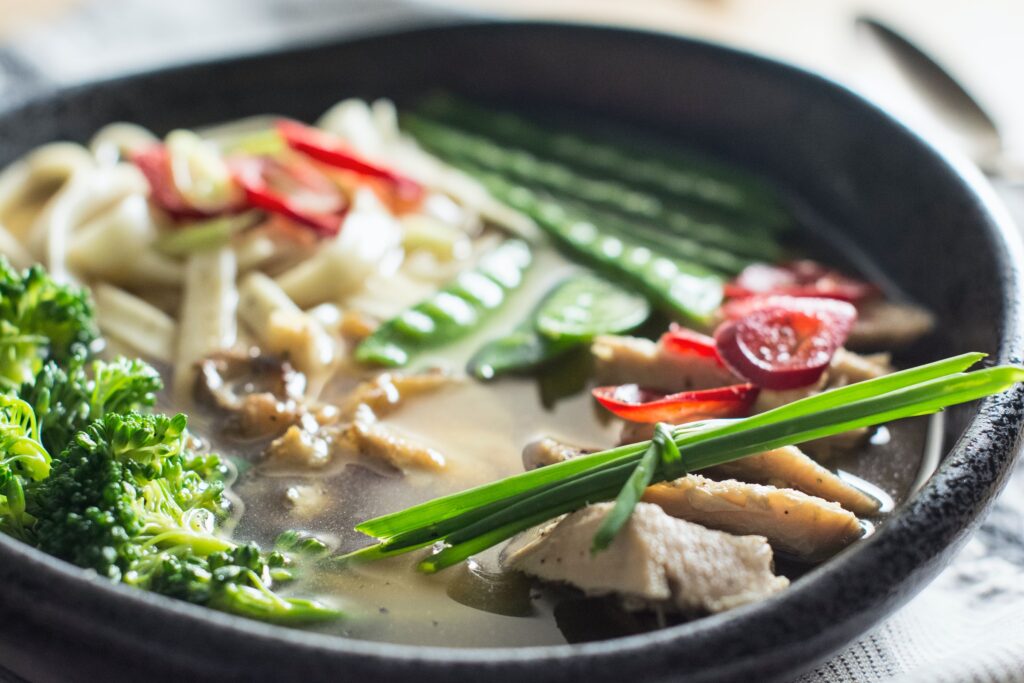
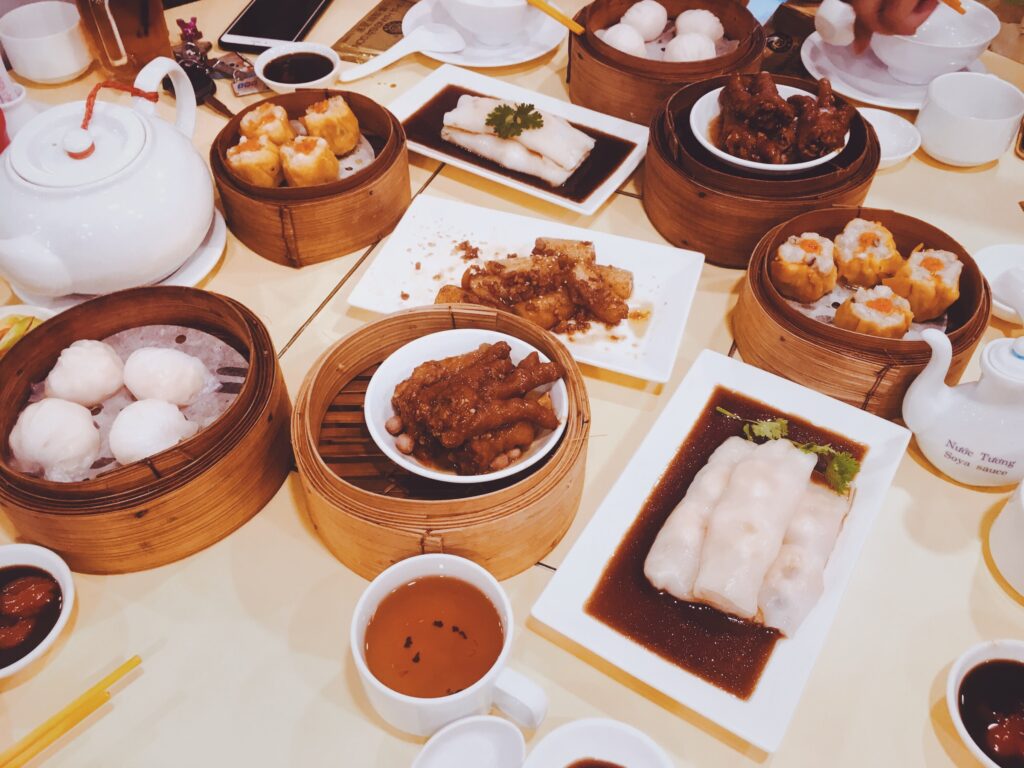
Dishes from Beijing are not fancy, but they pack a punch when it comes to flavour. Cabbage dishes and home-style noodles are particularly common, and Peking Duck is a must if visiting the city. Most expats are most familiar with Cantonese dishes (also referred to as Hong Kong or Guangzhou). Dim Sum is a popular highlight, with the small tasty morsels containing meat or seafood. Fish is particularly associated with Cantonese cuisine, as well as noodles and rich flavour as opposed to spice. If your palette can handle the heat, Sichuan chefs are not shy with chillies. Many argue that Sichuan food is the finest Chinese cuisine.
The Chinese do not shy away from alcoholic beverages, and jiu is an all-purpose word used to describe a range of alcohols. The Chinese tend to serve their drinks in small glasses, which is helpful when rice wines and baiju are around 56% alcohol. Chinese beer is around 3%, which is weaker than western beers, but still exercise caution as your glass will remain topped up.
China Crime Rate
China is a relatively safe country and expats will not face the usual dangers associated with moving to a new country. Pickpocketing is often the number one expat crime fear but in China, there are more innocuous areas to be wary of, such as driving and food.
Understandably, built-up tourist areas fall foul of the usual petty theft, but this isn’t commonplace. It is best practice to take a little more care when securing your home and, if out and about, keep valuables out of sight.
Pollution is something expats should take precautions against in China. On arrival, the smog can be completely overwhelming and expats are encouraged to exercise regularly and use an air purifier at night. Foreigners who arrive in China often suffer from sinus congestion, runny nose, and itchy eyes. However, healthy individuals are less likely to suffer from the smog long term, but it is imperative to make some lifestyle changes to combat the pollution.
Aside from dog meat scandals and the use of endangered species in Chinese cooking, local food producers can often cut costs by using illegal ingredients and unhygienic food practices. Expats should not be scared of trying all sorts of fantastic food in China, but it is best to air on the side of caution. The best way for expats to figure out which vendors to visit is by judging from the queues and cleanliness of the establishment. Do not eat food that does not appear fresh or appealing. Trust your gut.
China is a pedestrian-friendly country, but expats should be aware of the unpredictable traffic of the roads. It is completely normal for drivers to constantly break the laws on the road in China and etiquette doesn’t exist. Expats are encouraged to use public transport as driving is a stressful and dangerous experience, particularly for those who have never driven in the country.
Places to Visit in China
Everything is impressive in China. As a country that is not only vast but steeped in a history that many have never seen, there are numerous opportunities to experience things unlike any other country in the world. Even the cities are sights to behold; full of modern technology contrasting with cultural traditions.
Xi’an
Xi’an is the second most famous ancient Chinese capital (after Beijing). It served as the first capital during the Qin, Han and Tang dynasties. Due to its important historical standing, the city is rich with ancient sites and relics. The Terracotta Army (a contender for the eighth wonder of the world) is one of the most visited attractions of Xi’an, along with Big Wild Goose Pagoda, Small Wild Goose Pagoda and the Great Mosque.
Xi’an
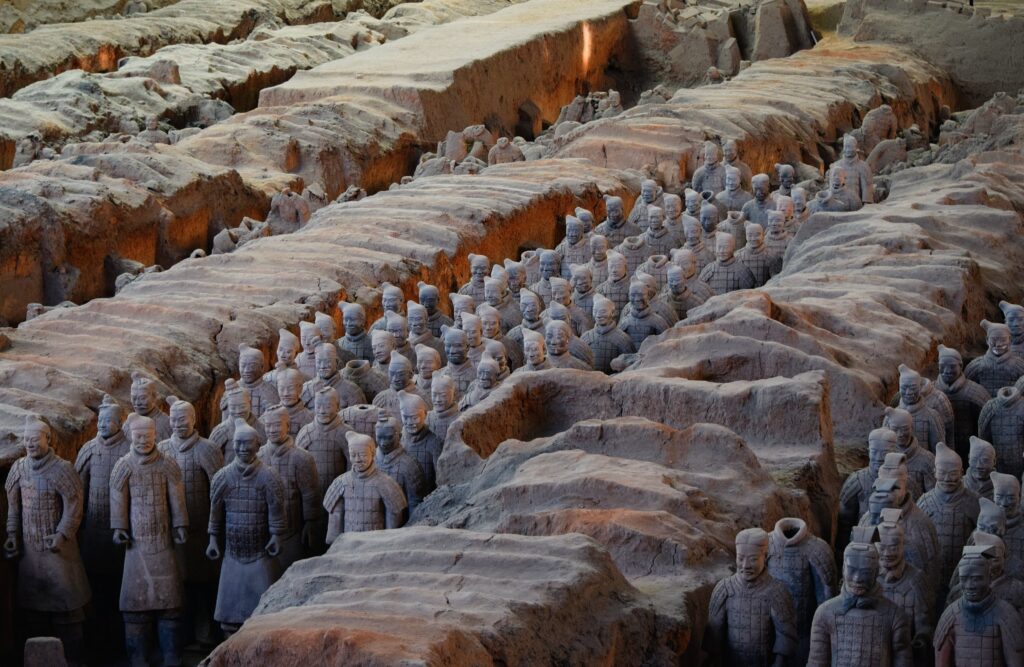
Great Wall of China
It would be criminal to live or visit China without a trip to the Great Wall. The iconic symbol of China is the longest wall in the world and is one of the New Seven Wonders of the World and a UNESCO World Heritage Site. The fortifications and the wall were built as a border defence system in 206 BC and as the centuries passed, different rulers adopted and revamped the wall.
The most popular Great Wall hiking route is the Jinshaling section. It is an all-day walk but is renowned as the most beautiful section of the Great Wall.
Great Wall of China
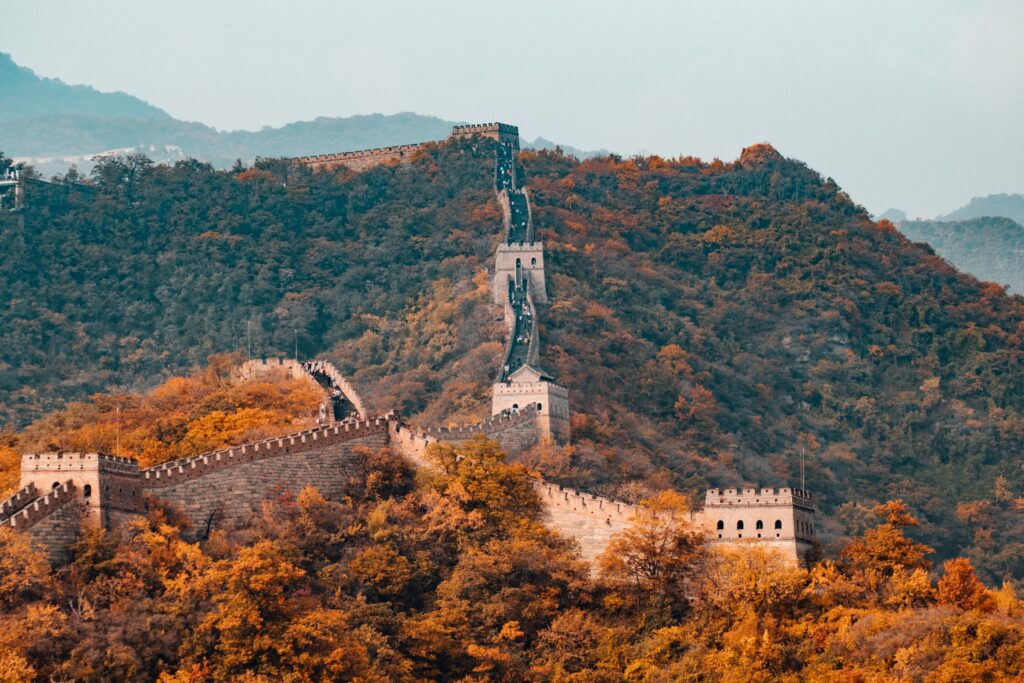
Chengdu
Not only is Chengdu a very popular residential location for expats, it is also the home of spicy Sichuan food. However, what the area is most loved for is Giant Pandas. The Chengdu Giant Panda Breeding and Research Centre and Panda Valley Sanctuary offer visitors a unique experience to help protect these endangered animals.
Chengdu
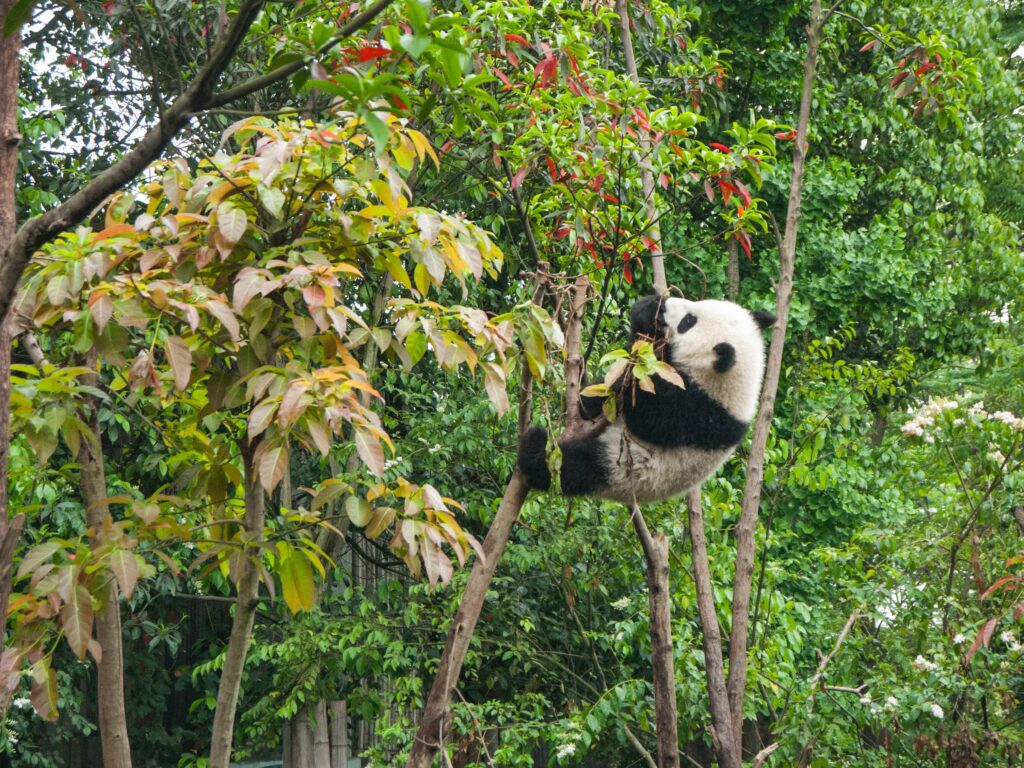
The Forbidden City, Beijing
The Forbidden City now houses the Palace Museum, but was once the imperial palace from the Ming dynasty to the end of the Qing dynasty. The palace city was an exclusive location, from which ordinary people were forbidden to enter. It is one of the most extravagant examples of ancient Chinese architecture and the 8,00 rooms are adorned with golden roofs and incredible paint work in reds and yellows.
It is recognised as one of the five most important palaces in the world (with the Palace of Versailles in France, Buckingham Palace in the UK, the White House in the US, and the Kremlin in Russia).
The Forbidden City, Beijing
